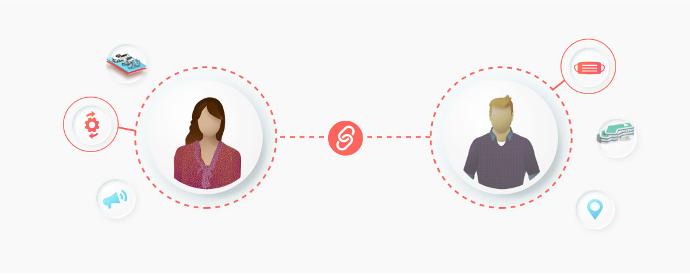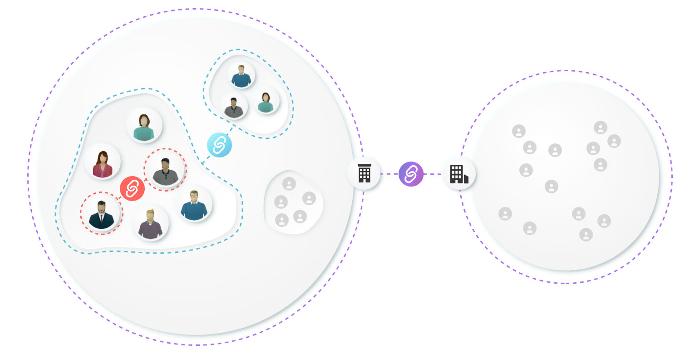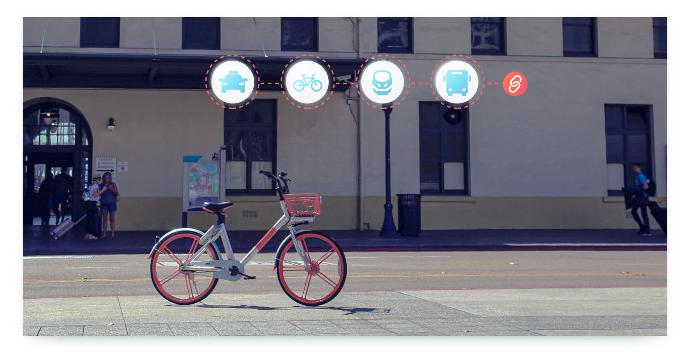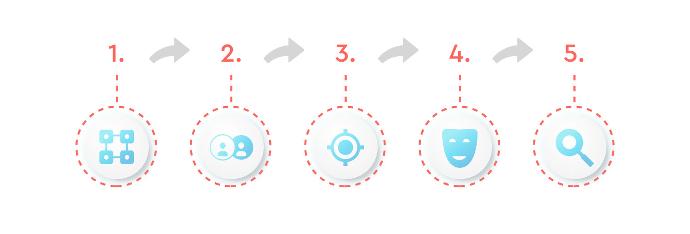Elbow mentality was yesterday. Anyone who wants to be successful today relies more on working together instead of against each other. One way to achieve this is through collaborative teamwork. Find out what's behind it and why you, as a shared mobility provider, should focus more on it.
A new mindset for better results
A few centuries ago, there were still people who knew everything that humankind had accumulated in terms of knowledge at that time - so-called universal scholars. Today's level of knowledge has become too great for that. And it continues to grow: In the middle of the 20th century, it took around 50 years for all of humanity's knowledge to double. Today, this duration is estimated at less than 100 days.
Universal scholars and generalists are therefore no longer to be found today, but instead numerous specialists in a limited field. In the world of work, this means that individuals cannot solve all problems on their own and can handle all tasks without help, but must repeatedly draw on the knowledge and skills of others.
For example, you are running a carsharing service in a small town when suddenly the Corona pandemic breaks out. You alone cannot know what measures you should take to protect the health of your customers and employees - after all, your area of expertise is shared mobility and not the prevention of infections. So look for an appropriate expert with whom you can work out a suitable strategy for action. This could be, for example, an employee of the public health department, a consultant with a medical background, or an employee of the city administration who always knows the current legal requirements. Or you can exchange ideas with other providers who are ultimately in the same situation.

Fortunately, it doesn't happen every day that a new pandemic breaks out. However, the unforeseen is likely to hit you on a daily or at least weekly basis - even if it may not always make as big a splash as a global health crisis. The world and individual industries are changing fast, and there's no sign of that pace slowing down any time soon.
To keep up with the complex and constantly changing environment, you need new forms of collaboration and new models of thinking. Blinkers that prevent you from looking left and right won't get you anywhere, nor will an elbow mentality of "you versus them." By acknowledging that the expertise of you and your team has limits, you open yourself up to a world of new possibilities.
Targeted collaboration on individual tasks with people and teams that complement your own expertise leads to a win-win-win for everyone involved. And it broadens your own horizons, which will also enrich you in the long term. The keyword here is collaboration - learning it will help you achieve better and possibly faster results.
What collaboration means…
For a long time, the term "collaboration" had a negative connotation, especially in Germany. After all, it was used for a long time primarily in reference to World War II and meant working together with the enemy during the war or occupation. This meaning is now outdated and the term is increasingly used in a more value-free way. Today, collaboration generally means ideational or intellectual cooperation.
Collaboration is closely related to cooperation - and yet different. Cooperative work usually aims at a specific result. Collaborative work, on the other hand, focuses on the process that leads to the result. It's about actually working and learning together, not just dividing up work.
The latter is what often happens in a cooperative effort: The overall task is broken down into several subtasks, for each of which individual people or teams are then responsible. A person or a team thus always pursues a sub-task and can work on their tasks in parallel without having to know each other personally at all.

...and what it offers
Unlike in a cooperation, you do not work on tasks one after the other or side by side within a collaboration, but together. The results thus reflect different perspectives, experiences and competencies. A space is created in which ideas are expressed more quickly and, if necessary, taken up and further developed. The fact that feedback loops are eliminated and questions can be answered directly also increases the efficiency of collaboration.
Another advantage of collaboration is the high degree of transparency. All participants are always up to date due to the close exchange. This leads to fewer so-called "knowledge silos" - i.e. situations in which knowledge is only available to one person or one team and is not shared beyond that in the company.
In addition, a collaborative way of working trains the soft skills of your team members. After all, this requires open, respectful and goal-oriented communication. The participants have the chance to test and improve their skills in this regard. Since everyone pulls together and pursues the same goal, this also strengthens team spirit and a sense of togetherness - within a team or even beyond.
The practical thing about collaboration is also that it doesn't have to be planned well in advance, but can basically start immediately. It's up to you to decide exactly how you want to organize the collaboration. You are flexible in terms of content, time and personnel.

By the way, you can also invite other providers to this table. After all, the basic idea of collaboration is to disregard competitive thinking. Approaches to collaboration include joint marketing activities, a joint app that allows users to select the most suitable offer, joint mobility stations, or the pure exchange of experiences.
Collaboration within networks and associations
A good example is also the Thüga Group, the largest German network of municipal energy and water service providers. Through the Thüga Innovation Platform, all Thüga partners benefit from active support from the network as they develop, roll out and operate their shared mobility projects.
The same applies to Dörpsmobile - an initiative to promote e-car sharing in rural areas of Schleswig-Holstein. Interested communities and associations are advised by the network's coordination office and supported step by step in setting up their own service. If they have any questions, they can draw on the knowledge and experience of the entire network.
And the Bundesverband Carsharing e. V. (bcs) also relies on close collaboration with its members. The association is always ready to support and advise providers in their concerns. It organizes internal and external events and promotes networking within the association and beyond.
First steps towards more collaboration in your company
If you are now motivated to put a greater focus on collaboration in the future and don't know how to get started, rest assured: for now, just keep working the way you have been. You don't need to turn existing processes inside out overnight. Instead, collaboration is primarily a mindset that is allowed to evolve over time.
The following steps will help you along the way:
4. Dare to think more in terms of roles and less in terms of hierarchical positions on a temporary and topic-related basis. Depending on how your organization is structured, this may be unfamiliar at first. However, collaborative working requires that you work on a task in a team on one level and make decisions together.
5. At regular intervals, take the time to reflect on what is going well and what is going or has gone less well. Look for possible reasons, blockers or dependencies and discuss them with your employees or partners in order to find solutions. Stay curious and dare to question the old and try out the new.


Successful collaboration may be easy
Hopefully, what you have learned so far is that collaboration is worthwhile at all levels. And that you don't have to do everything differently, but can make a big difference with just a few small steps. There are tasks that you do not have to master alone. Trust that you can only win through collaboration with colleagues and partners - and allow yourself to adapt your mindset and your work processes accordingly.
Work together in an interdisciplinary way as well - you can only learn from each other.
Put the focus on a common end result.
Reflect on yourself and your collaboration regularly.
Take ownership within an equal collaboration.
Think more in terms of "we" and less in terms of "I."




